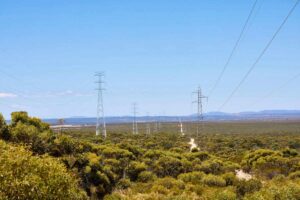Members of the solar PV industry are aghast at some of the findings of the Queensland Competition Authority’s final report on a “fair price for solar”, wondering if its intention is to protect consumers, or the operators of the electricity networks.
RenewEconomy produced a detailed analysis of the findings on Monday, which illustrated how the QCA was intent on focusing on the costs of solar PV – and the unsustainably high feed-in tariff (FiT) – but none of the benefits.
But one of the proposals of the QCA – that of obliging households with rooftop solar PV to move to time-of-use (ToU) pricing – has fuelled the ire of the solar industry.
The QCA considered a range of proposals to reduce the burden of the cost of the FiT on consumers, but its conclusions on the ToU proposal – recommending its adoption despite finding it would be ineffective, more expensive, inequitable, and contrary to the rules of the National Electricity Market, but would boost the revenues of network operators – are bewildering and contradictory.
In its report, the QCA concedes that compulsory ToU pricing for Queensland solar households in fact it could encourage these households to export more self-produced electricity – at extra cost to all consumers – because of the structure of ToU tariffs (known as Tariff 12 in Queensland).
Amazingly, Tariff 12 offers a lower daytime (7am to 4pm) rate than the flat rate of the standard Tariff 11, providing a greater incentive for rooftop solar owners in Queensland to exporting electricity during daylight hours – the opposite of what the QCA is trying to achieve.
The QCA says one way to fix that is to bump up the ToU rate to more than the 44c/kWh tariff, but it says that given the move to “cost reflective” tariffs, this “is unlikely to be a sensible solution,.”
Furthermore, the QCA says that a ToU tariff might penalise a customer that has an inflexible consumption profile and mandating that they be billed on a ToU basis could produce “undesirable and inequitable outcomes. “
And it notes that the National Electricity Rules, and the COAG principles, state that solar PV customers should not have tariffs which mean they are treated less favourably than people without PV.
For all that, the QCA still recommends that the government adopt specific TOU tariffs on solar PV customers.
Why? The only benefit it cites is that Tariff 12 structures have a higher fixed charge, meaning that the state-owned networks pocket more money – even if overall cost to consumers from the FiTs is not reduced, and may actually increase.
It’s yet to be seen if the government takes up the recommendation. It is apparently considering other measures such as putting a cap on the output or rooftop solar that could qualify for the 44c/kWh tariff.
But the solar industry is dumbfounded by the QCA conclusion – and not for the first time. It puts those comments by NRG CEO David Crane, Duke Energy CEO Jim Rogers and SolarCity CEO Lyndon Rive – about the battle about to be played out by network operators and solar generators in the US – and presumably in the rest of the world – into some context.






